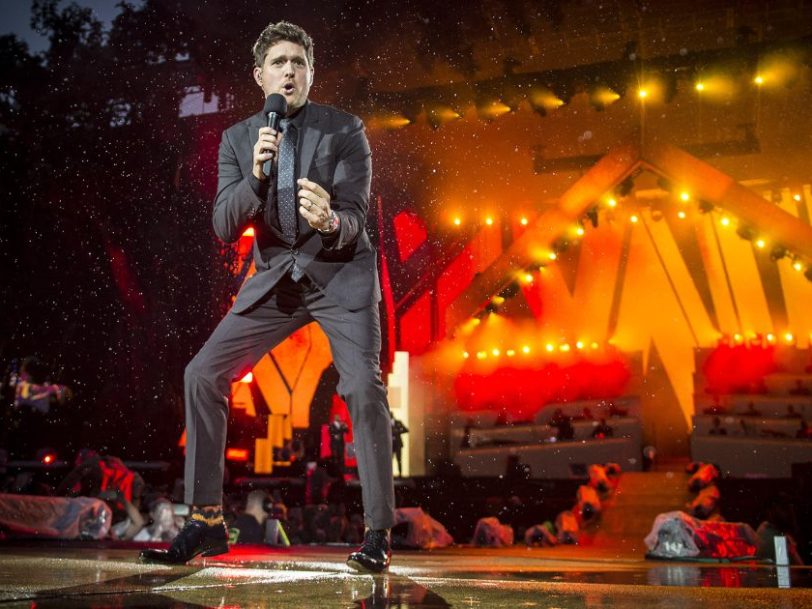With his velvet-smooth voice and a repertoire of songs mostly drawn from the revered pages of the Great American Songbook, Michael Bublé is an unapologetic devotee of the golden age of the crooner, when his idols Bing Crosby, Frank Sinatra and Dean Martin ruled the airwaves in their 40s and 50s heyday. But through Bublé made crooning cool again in the 21st century, he was not content to be regarded as a throwback artist whose nostalgic sound evoked another era. Savvy enough to realise that, for his career to thrive as well as merely survive, he needed to diversify, Bublé recorded an album, 2009’s Crazy Love, which saw him not only tackle contemporary-sounding pop songs but also, as the hit single Haven’t Met You Yet revealed, emerge as a talented songwriter who had a knack for an infectious vocal hook. A decade later, however, and following a family crisis, Bublé returned to the jazz classics with his 2018 album, Love, a project which became one of the closest to his heart.
This is the story of how the Love album rekindled Michael Bublé’s romance with the jazz songbook.
Listen to Michael Bublé’s ‘Love’ album here.
The backstory: “It’s been a little while, huh?”
In the years following the release of Crazy Love, a cool blend of classic and contemporary pop-music styles continued to pay off for the Canadian singer. After releasing his mega-selling Yuletide album, 2011’s Christmas – which not only became the biggest album of his career, but also one of the best Christmas albums of all time – Bublé returned with To Be Loved in 2013, featuring the self-penned hit single It’s A Beautiful Day, which further cemented his pop credentials and showed that the best Michael Bublé songs could transcended his crooner roots.




